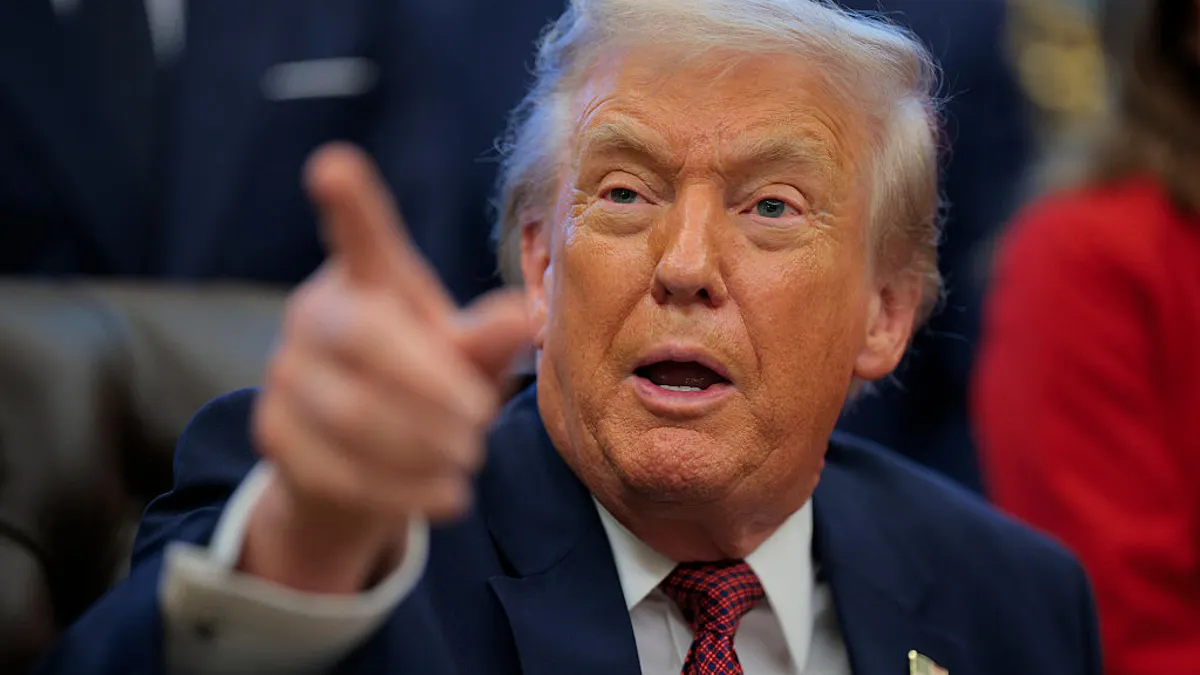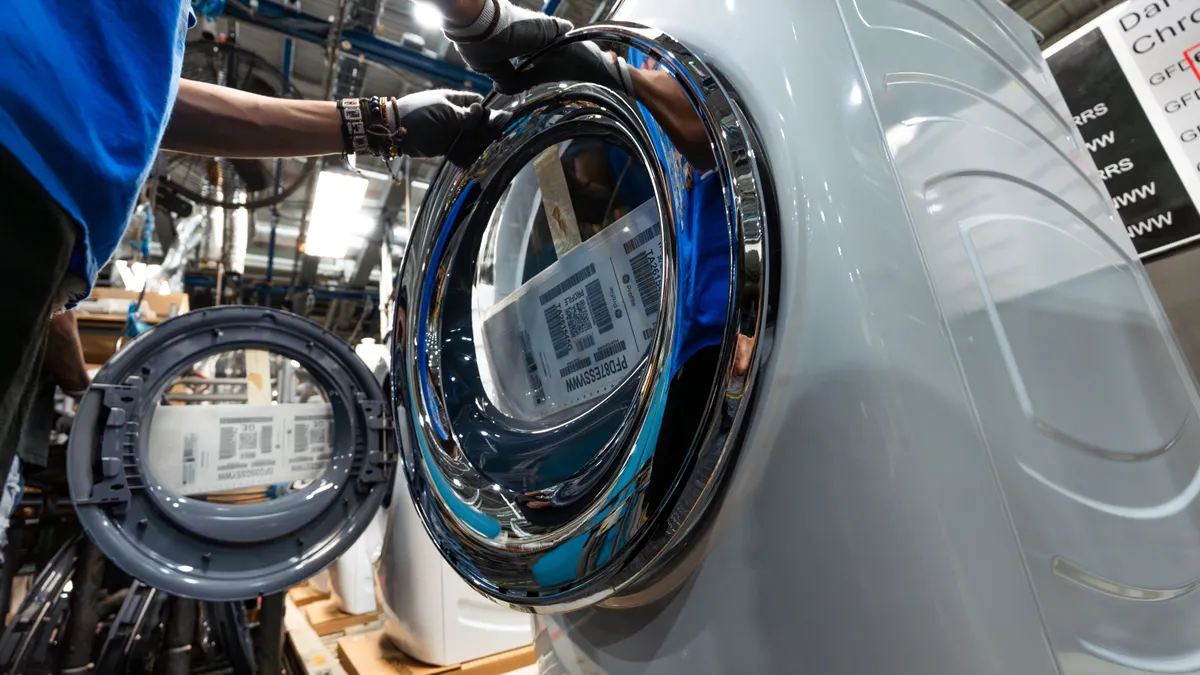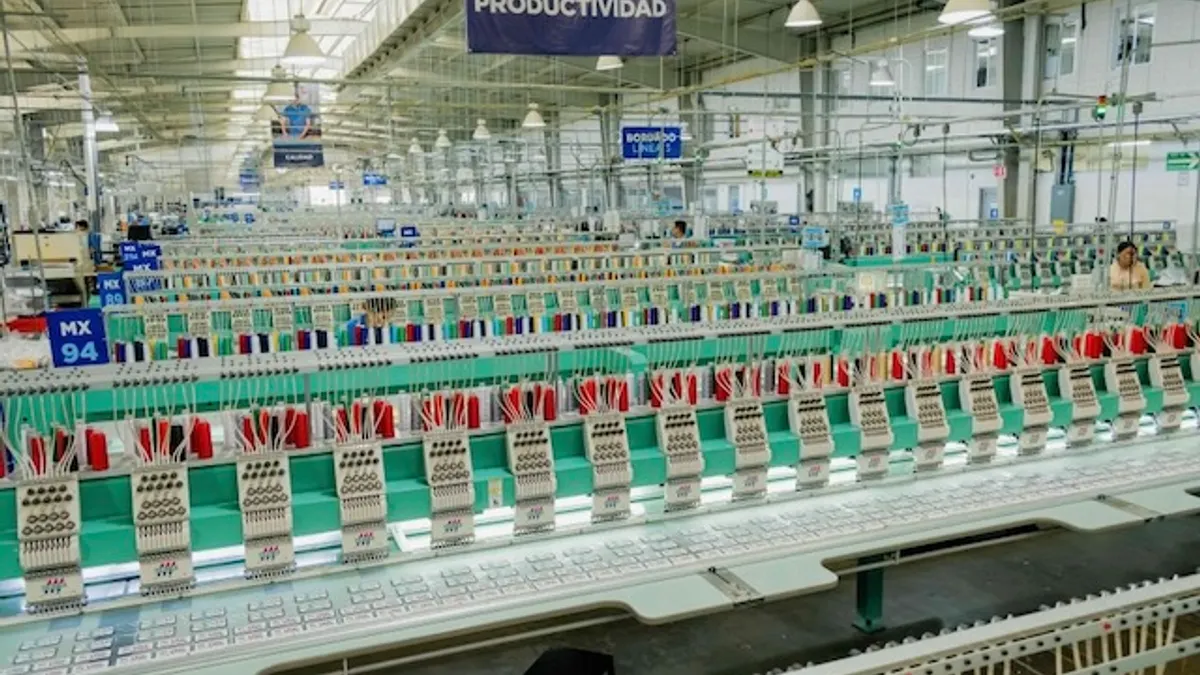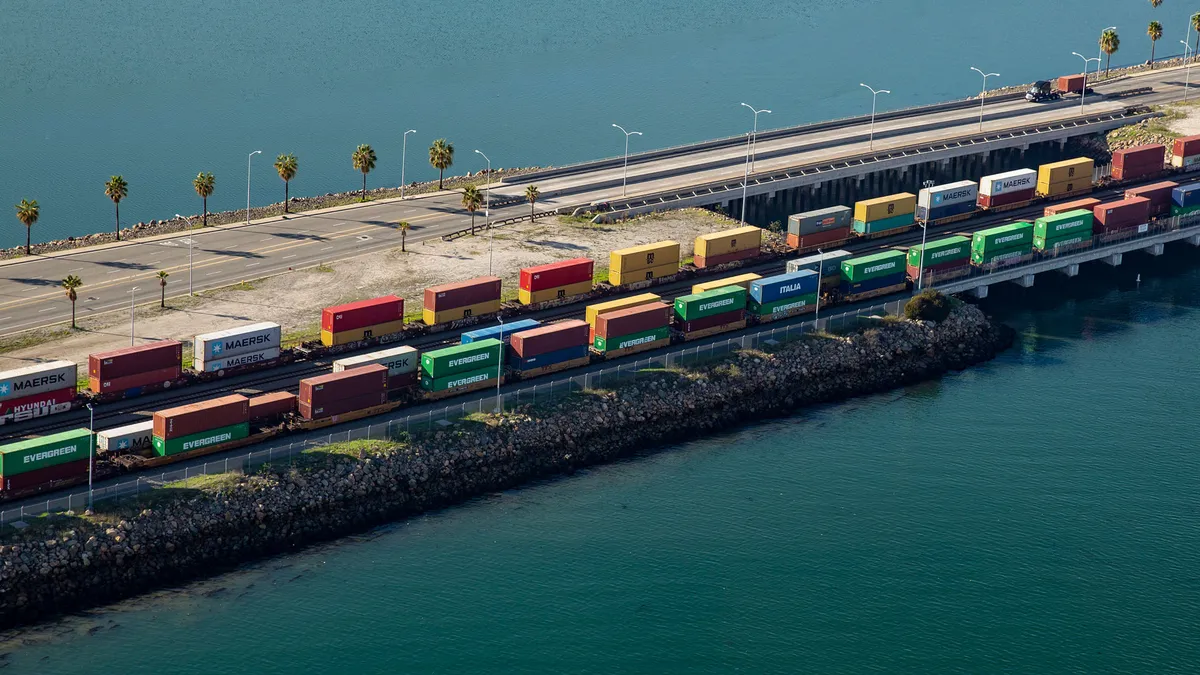The fate of the ethnic minority community known as the Uighurs in Western China isn't just gaining awareness as a humanitarian crisis — it's also gaining urgency as a potential supply chain risk.
The Uighurs are a Muslim minority traditionally living in Xinjiang Province in Western China. The Chinese government is targeting the group with interrogation, surveillance, internment and violence. Though China claims thousands of camps in Xinjiang are vocational training camps, the international community largely recognizes them as internment camps where Uighurs are forced to work and where their religious practice is forbidden. Some estimates put the number of interned Uighurs at 1.5 million.
Ryan Lynch, practice director for sustainability at the British Standards Institution, said ignoring the issue would leave the door open for considerable supply risk.
Speaking at the U.S. Fashion Industry Association’s Apparel Importers Trade and Transportation Conference Thursday, Lynch said its time to get serious about the humanitarian crisis that, as governments decide how to best combat it, could cause major supply disruptions for apparel importers, particularly cotton imports.
Xinjiang, Lynch estimated, produces roughly 85% of the cotton coming out of China — cotton understood to be picked by Uighurs and other interned minorities. China is also the largest cotton producer in the world. Because of that, it’s essential, said Lynch, that supply chains glean from manufacturing partners where the raw materials for their goods are coming from and insist upon documentation.
"Most of that [cotton] is going into production sites in China. Some of that is going into your products potentially. So long story short is that if you don't know where the raw materials for your products are coming from, broadly speaking, but specifically with suppliers in China, you should assume that you're at risk," said Lynch.
Seeing to the origin
In January, Badger Sportswear announced it would no longer source from Hetian Taida Apparel in Xinjiang province after an Associated Press investigation found the factory workers to be unpaid detainees of the state — some Uighurs, some other ethnic minorities. Customs and Border Protection issued a withhold release order against Hetian Taida in October.
But according to the Center for Strategic and International Studies (CSIS), it is rare that factories can easily be clearly and directly tied to forced labor or the camps. Hetian Taida Apparel is an outlier, since it is located inside a camp and worked directly with a U.S. importer. "Typically, it is likely that more due diligence will be needed, and the results will not be as clear," wrote CSIS.
An October report from CSIS explained that the usual audits — used to verify all manner of health, labor and safety standards worldwide — are ineffective in this case due to the level of fear felt by Uighers released from the camps and the level of government control in Xinjiang. So how can supply chains determine their exposure?
When supply chain managers start asking questions and getting to the bottom of their supply chains, these are the tell-tale signs of forced labor in Xinjiang, according to CSIS:
- A factory in a detention facility.
- A factory in an industrial park that is connected to the government’s "reeducation" efforts.
- A company hiring workers through government recruiters.
- Language mentioning employing ethnic minority "graduates" or ex-detainees; those who were trained and cleansed of extremist thoughts; or involvement in "reskilling."
- A new factory built near a detention facility around the same time.
- A company that is receiving incentives/subsidies from the government for items such as "training supplements" for particular factories in Xinjiang; "vocational training;" or "aid to Xinjiang."
- Participation in the government’s poverty alleviation and/or pairing programs in Xinjiang.
- A company with ownership linkages to a company known to be part of the system of prison labor in Xinjiang, and significant company profits and manufacturing productivity despite a small number of workers enrolled in the government’s social security program.
It’s a dicey time for apparel importers, acknowledged Lynch. Shifting sourcing to avoid tariffs has increased the due diligence required of U.S.-based supply chains making faster-than-normal sourcing changes. According to CSIS, sourcing from China amid this crisis demands sourcing officials "trace their supply chains to origin so that the chain of custody is clear." The CSIS report suggested a complete ban on products from Xinjiang would be the only way to be sure a company's products were exposed to the atrocities in Xinjiang.
Xinjiang sourcing in the balance
On the Uighur issue, the imperative of supply chain visibility may become an external pressure as well as an internal one soon. On Nov. 5, several members of the Congressional-Executive Commission on China, a bipartisan and bicameral committee in Congress, sent a letter to Acting Commissioner of CBP Mark A. Morgan calling for "aggressive action" using CBP’s main tool: a withhold release order on all goods manufactured in the region where the Uighurs are being held.
"We note the action taken by the CBP recently to block the import of garments produced by the Hetian Taida Apparel Company ... This step sends an important message, but there is compelling evidence to suggest that manufacturing using forced labor is not only widespread but integral to the Chinese government’s campaign of repression," reads the letter.
It goes on to acknowledge the virtual impossibility of distinguishing Chinese goods containing materials made with this forced labor and those without. It is already illegal to import goods produced with forced labor, but such an order would give CBP the ability to assume that all goods from this region are forbidden.
Adding further complication to a complex situation, is these abuses are taking place in the midst of a protracted trade war between the U.S. and China. After a rebuke from 22 United Nations member countries, including the U.S., last week, China's UN Ambassador Zhang Jun said pressure on this issue was "not helpful" in the U.S.-China trade talks, according to Al Jazeera.






















